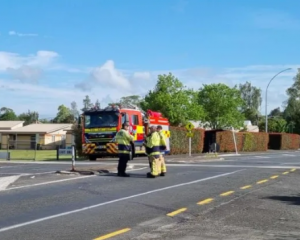Spanz has recommended changes to the ministry's search and seizure guidelines, which could give schools more power to search not only for drugs and weapons, but also electronic devices.
Julie Anderson, Spanz executive member and Queen's High School principal, said the ministry had been making good progress on consulting the education sector on how best to incorporate the guidelines into the Education Act 1989.
As part of the consultation, she said Spanz had proposed search and seizure powers be generalised and it had given a high level of deference to principals and boards of trustees.
The underlying principle was the health and safety of pupils, not law and order, she said.
"The powers should extend to searching not only for drugs and weapons, but also any electronic device such as cellphones, laptops and iPads, as they often contain evidence of cyber-bullying, which strikes at the core of a healthy and safe school.
"It was also our view that the powers should extend beyond the school gate and after hours," she said.
"We asked that the powers be examined in relation to school hostels and to homestays where international students are placed."
Mrs Anderson said schools already had a set of in-depth search and seizure guidelines, but the ministry was now consulting the education sector to have the guidelines incorporated into the Education Act, so they would have a higher standing in a legal context.
"At the moment, if it is thought a student has a weapon, we [principals and boards of trustees] have to ask if we can see inside a student's bag, and the student has the option to consent.
"But if they don't consent, we've got no power to search.
"The guidelines at the moment mean we can't do anything the student doesn't want us to.
"It's hoped that the changes will ensure that the health and safety of all students remain paramount in schools."
Mrs Anderson said the consultation had been complex and long-winded because the ministry wanted to ensure the changes would not breach human rights laws.
"That's why they are fully discussing the legal ramifications of such changes."
Mrs Anderson said the Government was to be applauded in fast-tracking the "very sensible" recommendations of the Law Commission to tackle cyber-bullying.
Although schools had rightly taken an educative approach to the issue, regrettably, penalties were needed for a small group of pupils who refused to desist from this behaviour, she said.












